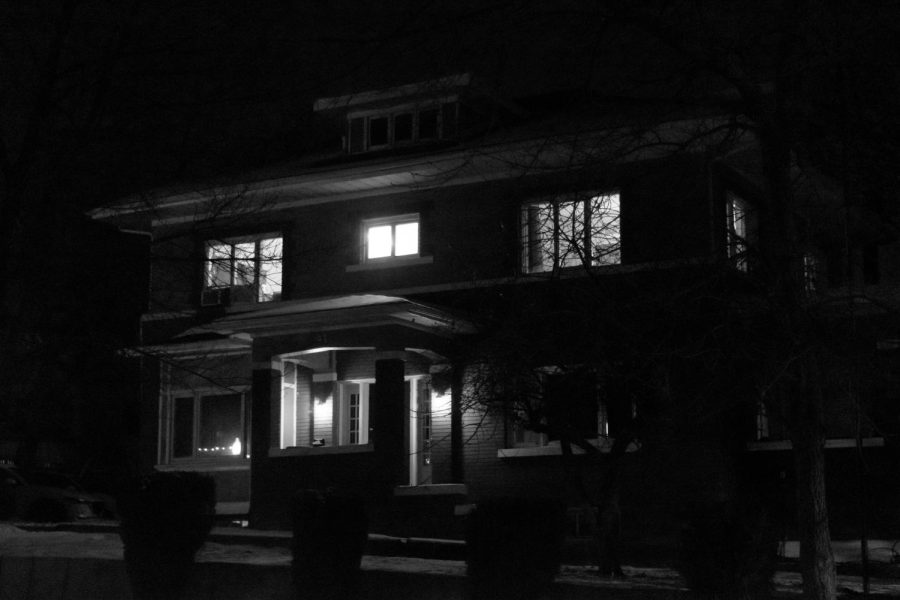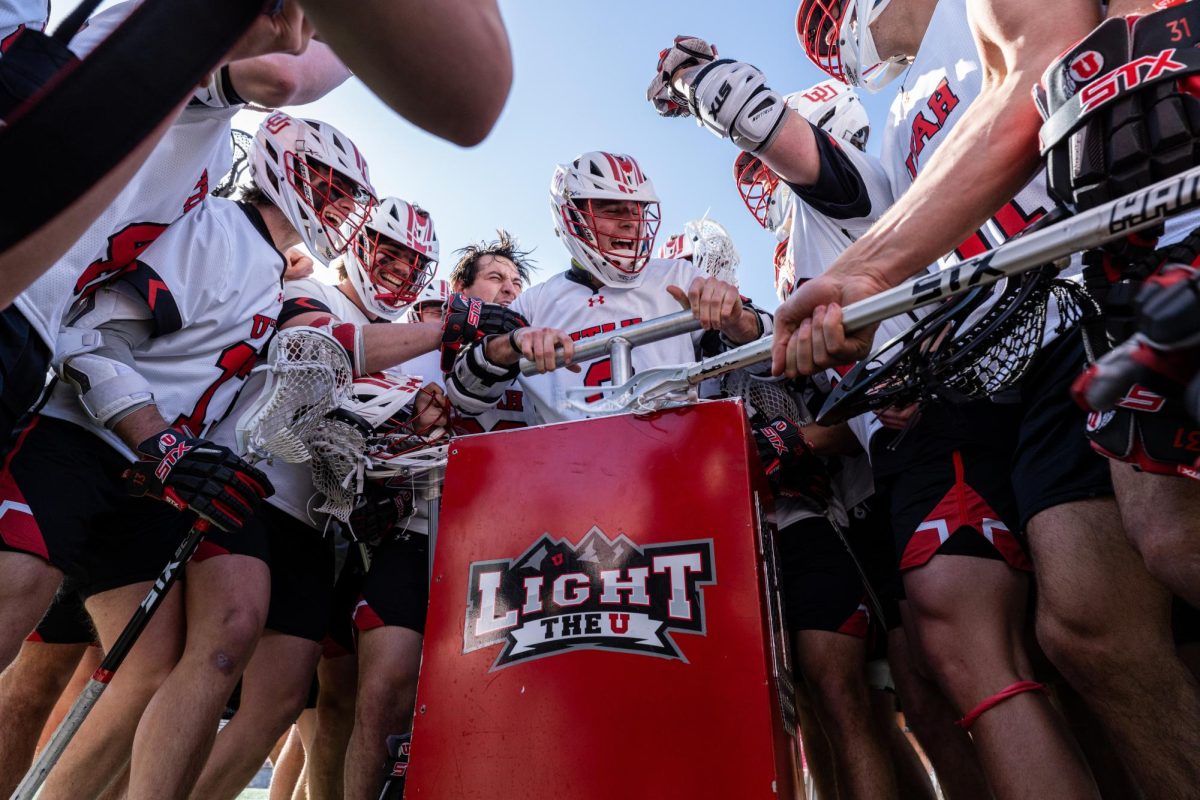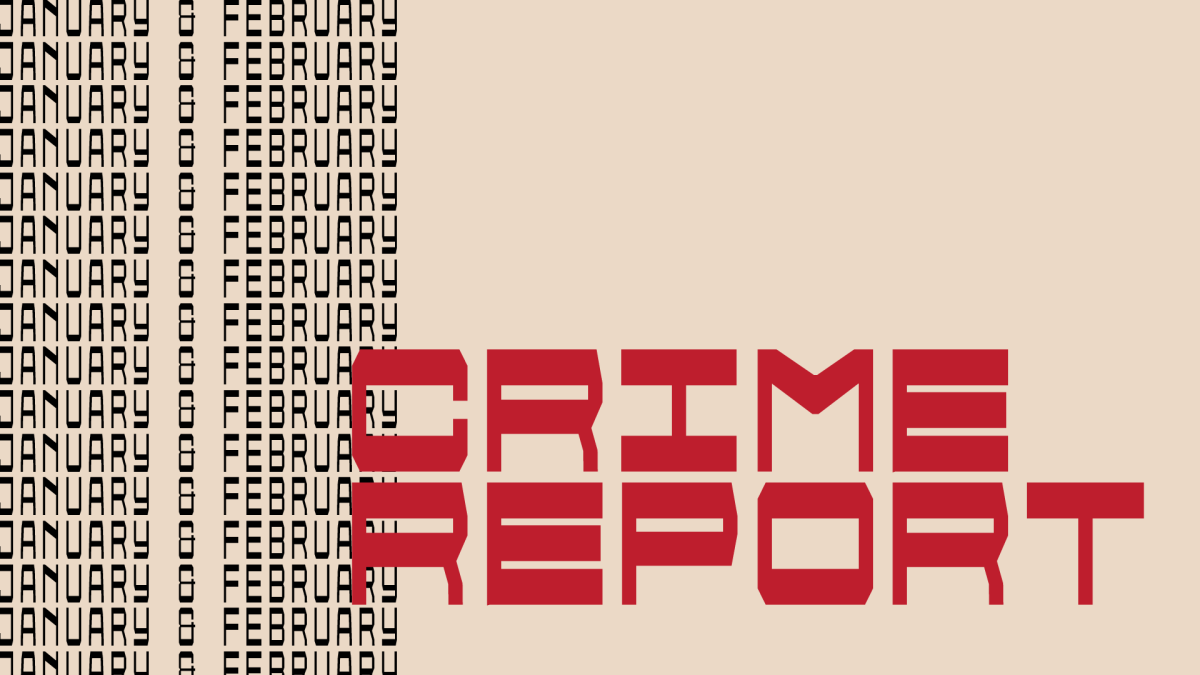University of Utah Terminates Kappa Sigma for a Year
Lights are illuminated inside the Kappa Sigma fraternity house on Monday, Jan. 23, 2023 in Salt Lake City. (Photo by Jack Gambassi | The Daily Utah Chronicle)
January 24, 2023
The University of Utah has terminated its recognition of the Kappa Sigma fraternity chapter for one year. The administration came to the decision after the chapter hosted philanthropy events during a probationary period and deemed it necessary to no longer recognize Kappa Sigma as an affiliate of the U.
Associate Dean of Students Ken Stonebrook said the fraternity was already on a one-year probation due to an ongoing investigation.
On Oct. 26, 2022, Kappa Sigma was put on administrative suspension due to hazing allegations and was told it could not hold any events. Stonebrook said, “Placing Kappa Sigma on administrative suspension was determined to be the most appropriate step.”
Administrative suspensions put a pause on all activities within an organization. “The expectation was that Kappa Sigma as a chapter was to not operate in any way, shape or form,” he said.
Despite being on suspension, Kappa Sigma held their philanthropy events the following week. The fraternity raised $16,000 to donate to organizations fighting against ALS.
In a letter addressed to fraternity leadership, Vice President of Student Affairs Lori McDonald wrote, “This violation is egregious—the chapter was on probation from the spring investigation and the chapter was told repeatedly by University authorities that the activities were prohibited, yet the chapter leadership knowingly disregarded the University’s directives.”
Fraternity leadership were reminded several times that no events were to be held during their suspension. According to the letter, fraternity leadership said, “I’m still not shutting it down, I don’t really care.”
Stonebrook said the university takes allegations of hazing very seriously. “Given the serious nature of those allegations, the university wanted to do everything within its power to not only take those seriously but to address them in a way where we could protect the community as a whole,” he said.
McDonald said she was concerned the fraternity was not listening to what was expected of them during an investigation. “I did not have confidence that any other type of probation or intervention, for that matter, would be followed,” she said.
According to Stonebrook, “Kappa Sigma’s unwillingness to comply with the directives of the university resulted in the ultimate recommendation for their termination.”
McDonald said termination is the most serious level of action a university can take against a recognized organization, however, they cannot control what the fraternity chooses to do independently from the U.
Kappa Sigma can still operate independently from the U if the national headquarters continues to recognize them. Stonebrook said if they hold events off campus on behalf of Kappa Sigma, those can continue to happen, although their recognition has been terminated.
He added, “Folks just need to understand that those things may be happening despite all of the university’s best efforts to address the conduct.”
This is not the first time Kappa Sigma has lost its affiliation with the U. In 2002, the fraternity lost recognition after more than 50 alcohol violations, 40 of which were citations for underage drinking, occurred at a keg party.
In the last couple of years, fraternity and sorority life have faced suspensions after two sexual assaults were reported to the school, with one of the assaults being reported at Kappa Sigma. In early 2022, the U suspended all fraternity and sorority life events for two weeks.
McDonald said Kappa Sigma is welcome to reapply as a new fraternity of the U on Jan. 1, 2024, if “they can demonstrate that they are ready to operate in good faith.”













